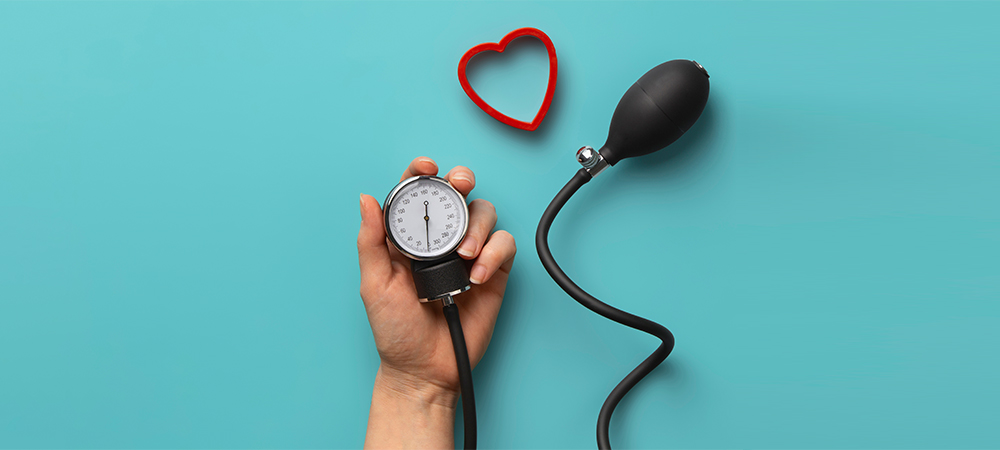
Pulmonary hypertension treatment goes beyond medical interventions. It requires comprehensive and well-monitored self-care. This guide explores practical, expert-approved pulmonary hypertension self-care tips for your daily routine. From diet adjustments, breathing exercises, and lifestyle changes to understanding the emotional side of PH, these tips will be the most powerful tool in your arsenal.
Understanding Pulmonary Hypertension: A Complex Landscape
During pulmonary hypertension, the lungs’ arteries become constricted, blocked, or damaged. Consequently, the blood flow slows down and the heart must make increased efforts to keep it moving. Eventually, the added stress damages the heart and increases the risk of stroke, cardiovascular complications, lung disease, and blood clots.
What makes PH tricky is that it affects both your lungs and heart at the same time. Symptoms like shortness of breath, chest pain, fatigue, and swelling can make everyday life feel like a chore. But here’s the thing: managing PH doesn’t have to be just about coping. By focusing on pulmonary hypertension self-care, you can improve your condition and feel better about yourself.
Managing Pulmonary Hypertension at Home
While medical treatments are uncompromisable, taking an active role in your health through self-care practices at home is equally important. It really helps you feel more in control and even slow the progression of the disease.
1. Track Symptoms Like A Pro
The first step in effective pulmonary hypertension self-care is consistent and accurate tracking of symptoms. Gone are the days of vague symptom descriptions during doctor’s visits. Today, technology enables patients to track every relevant detail—from breathlessness to swelling, fatigue, and changes in exercise capacity.
Patients can do this using mobile apps for hypertension symptom tracking. For example, these tools allow you to monitor oxygen levels, heart rate, systolic and diastolic blood pressure ranges. Furthermore, you can correlate your symptoms with environmental factors like temperature changes, infections, and stress to track what worsens or soothes your condition. Plus, if your doctor has a real-time view of your symptoms, they can adjust your treatment faster.
2. Fuel Your Body with PH-Friendly Foods
What you eat plays a huge role in how you feel, making it a complex contributor to hypertension self-care. Eating well during PH involves not just eating nutritious food but a diet that strategically supports heart and lung health. You should incorporate meals that help reduce symptoms and enhance energy levels. Here’s a concise summary of what foods help and hurt you during pulmonary hypertension self-care:
Lower Sodium = Less Fluid Retention:
Fluid retention can exacerbate symptoms for many PH patients. Generally, this is because it can cause swelling and shortness of breath. Salt, or sodium, is one of the main perpetrators. Reducing salt intake helps lower blood pressure and avoid fluid accumulation.
For pulmonary hypertension self-care, try replacing canned goods, processed meals, and salty snacks with healthy, fresh, and whole-grain foods. Instead of using salt to season your food, use herbs and spices like turmeric, oregano, and garlic.
Anti-Inflammatory and Heart-Healthy Diet:
Eating foods that reduce inflammation, such as fatty fish (salmon, mackerel), leafy greens, and nuts, can support lung and heart health. Omega-3 fatty acids are known to reduce inflammation and improve circulation, which is especially helpful for people with PH.
Also, antioxidant-rich foods like berries, citrus fruits, and dark chocolate help protect your blood vessels and combat oxidative stress. Additionally, for effective pulmonary hypertension self-care, patients must avoid supplements like licorice and arnica.
Stay Hydrated (But Don’t Overdo It):
Dehydration can be a sneaky issue in pulmonary hypertension self-care, leading to fatigue and shortness of breath. While staying hydrated is important, overhydration can cause fluid retention and worsen symptoms. Work with your doctor to find the right balance and include hydrating foods like cucumbers, watermelon, and oranges in your diet.
3. Breathing Techniques to Maximize Lung Function:
Breathing exercises are essential for pulmonary hypertension self-care as the condition directly affects your lungs. By using these methods, you can increase your lung capacity, lessen dyspnea, and even reduce anxiety. The most effective exercises include pursed-lip breathing, belly breathing, and the Buteyko method.
4. Mental Health: Managing Stress and Emotional Well-Being
Hypertension self-care does not only depend on physical implications. Emotional health has a close and direct link with it. Anxiety, depression, and stress can all worsen your symptoms and make it harder to cope with the daily challenges of PH. Luckily, mindful meditation can significantly improve your emotional resilience. If you’re struggling emotionally, Cognitive Behavioral Therapy (CBT) can help you manage negative thoughts.
5. Move With a Purpose
Low-impact activities like walking, swimming, or gentle cycling can improve heart health and circulation. Start slowly and build gradually. A physical therapist can help tailor a safe, effective exercise plan to suit your needs.
6. Stay Connected: Building Your Support System
In pulmonary hypertension self-care, having a solid support network is essential. Connecting with people who share your experience, whether through family, friends, or clinical trials, may offer consolation and helpful guidance.
Participate in online forums, collaborate with medical research groups, and don’t be shy about discussing your physical and mental well-being. Talking to people about your experience may inspire and motivate you to continue.
Conclusion: Taking Charge of Your Health
Managing pulmonary hypertension requires more than just medication—it involves a holistic approach that includes careful monitoring, smart lifestyle choices, emotional well-being, and physical activity. Pulmonary hypertension self-care is about giving yourself the tools and strategies to manage your health, reduce symptoms, and improve your quality of life.
Through consistent symptom tracking, a heart-healthy diet, mindfulness practices, appropriate exercise, and the use of modern technology, you can create a self-care plan that works for you. And remember, participating in clinical trials can provide access to innovative treatments that may improve your outcomes.






